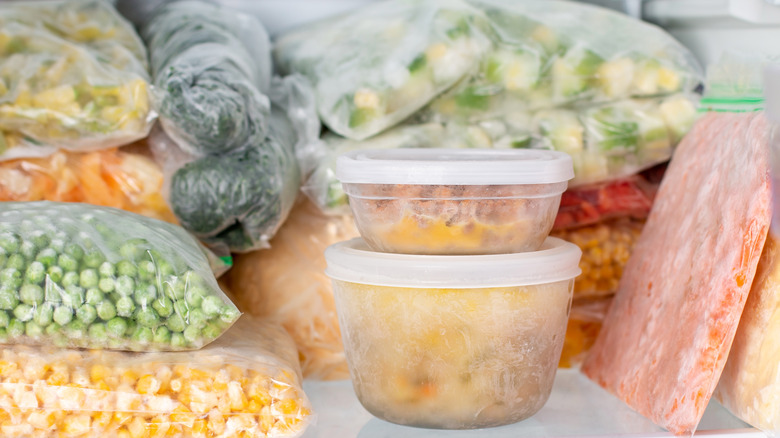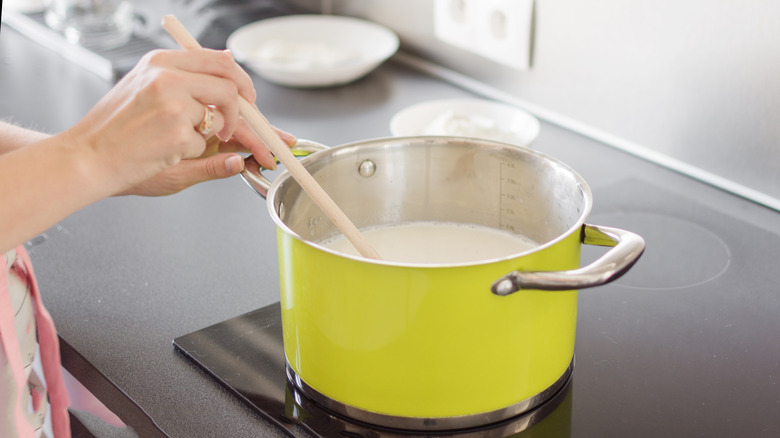Why You Shouldn't Freeze Some Sauces
If you mostly use your freezer as a storage space for items out of the supermarket frozen section, you've been missing out. The freezer is a great place to preserve cooked foods and grocery items with a limited shelf life, such as bananas or hot dog buns.
If you are going to start using your freezer for food storage, there are a few things to keep in mind. First, avoid freezing anything in glass, as it could shatter. Second, food safety rules say your freezer should be able to freeze cooked food within about four hours. Third, don't defrost food using hot water. Running your frozen food under hot water can partially cook it, changing the taste and texture (via Bon Appétit).
If you follow those general rules, you can safely freeze just about anything. However, there are certain foods that you should never freeze, as the freezing and thawing process can alter the flavor and consistency (via Delish).
Some sauces just shouldn't be frozen
When water freezes, it forms ice crystals, and those frozen fractals all around can have a devastating effect on certain foods, including some sauces (via Healthline).
If a sauce has been thickened with a starch like flour or cornstarch, the large amount of water absorbed by the starch molecules will crystallize (via The Spruce Eats). The resulting defrosted sauce usually ends up being much thinner. If that happens, you probably just have to let it go. That perfect sauce is gone.
In addition to sauces with starch, mayonnaise-based sauces and other emulsifications, like hollandaise sauce, also don't do well in the freezer. Freezing can separate fats from other ingredients, causing the sauce to break. Some cheese- and cream-based sauces — like béchamel and Alfredo — may also break if frozen. However, thawing in the fridge for several hours, and then whisking the sauce as you reheat it, can help bring it back to its former consistency (via Food Network).

